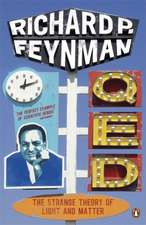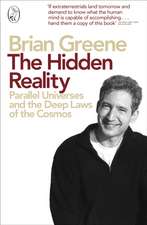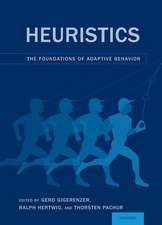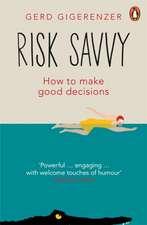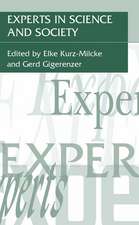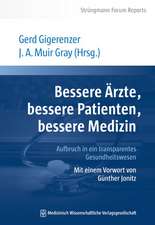Gut Feelings: Short Cuts to Better Decision Making
Autor Gerd Gigerenzeren Limba Engleză Paperback – 27 aug 2008
A sportsman can catch a ball without calculating its speed or distance. A group of amateurs beat the experts at playing the stock market. A man falls for the right woman even though she's 'wrong' on paper. All these people succeeded by trusting their instincts - but how does it work?
As Gerd Gigerenzer explains, in an uncertain world, sometimes we have to ignore too much information and rely on our brain's 'short cut', or heuristic. By explaining how intuition works and analyzing the techniques that people use to make good decisions - whether it's in personnel selection or heart surgery - Gigerenzer will show you the hidden intelligence of the unconscious mind.
'Fascinating and provocative ... Gut Feelings may well be the recipe for a simpler, less stressful life'
Sunday Times
'Gigerenzer's writing is catchily optimistic and slyly funny ... Devilish'
Steven Poole, Guardian
'The science behind the phenomenon cited in the bestseller Blink ... useful and clearly written'
Business Week
'Gigerenzer is brilliant'
Stephen Pinker
Gerd Gigerenzer is Director of the Center for Adaptive Behavior and Cognition at the Max Planck Institute for Human Development in Berlin and former Professor of Psychology at the University of Chicago. He has published two academic books on heuristics, Simple Heuristics That Make Us Smart and Bounded Rationality: The Adaptive Toolbox as well as a popular science book, Reckoning with Risk.
| Toate formatele și edițiile | Preț | Express |
|---|---|---|
| Paperback (2) | 69.53 lei 3-5 săpt. | +8.77 lei 5-11 zile |
| Penguin Books – 27 aug 2008 | 69.53 lei 3-5 săpt. | +8.77 lei 5-11 zile |
| Penguin Books – 30 iun 2008 | 102.12 lei 3-5 săpt. | +8.04 lei 5-11 zile |
Preț: 69.53 lei
Nou
13.31€ • 13.84$ • 10.99£
Carte disponibilă
Livrare economică 24 martie-07 aprilie
Livrare express 08-14 martie pentru 18.76 lei
Specificații
ISBN-10: 0141015918
Pagini: 288
Ilustrații: Illustrations
Dimensiuni: 129 x 198 x 17 mm
Greutate: 0.21 kg
Editura: Penguin Books
Colecția Penguin
Locul publicării:London, United Kingdom
Notă biografică
Gerd Gigerenzer is Director of the Center for Adaptive Behavior and Cognition at the Max Planck Institute for Human Development in Berlin and former Professor of Psychology at the University of Chicago. He has published two academic books on heuristics, Simple Heuristics That Make Us Smart and Bounded Rationality: The Adaptive Toolbox and Reckoning with Risk.
Recenzii
Descriere
In Gut Feelings: Short Cuts to Better Decision Making psychologist and behavioural expert Gerd Gigerenzer reveals the secrets of fast and effective decision-making.
A sportsman can catch a ball without calculating its speed or distance. A group of amateurs beat the experts at playing the stock market. A man falls for the right woman even though she's 'wrong' on paper. All these people succeeded by trusting their instincts - but how does it work?
As Gerd Gigerenzer explains, in an uncertain world, sometimes we have to ignore too much information and rely on our brain's 'short cut', or heuristic. By explaining how intuition works and analyzing the techniques that people use to make good decisions - whether it's in personnel selection or heart surgery - Gigerenzer will show you the hidden intelligence of the unconscious mind.
'Fascinating and provocative ... Gut Feelings may well be the recipe for a simpler, less stressful life'
Sunday Times
'Gigerenzer's writing is catchily optimistic and slyly funny ... Devilish'
Steven Poole, Guardian
'The science behind the phenomenon cited in the bestseller Blink ... useful and clearly written'
Business Week
'Gigerenzer is brilliant'
Stephen Pinker
Gerd Gigerenzer is Director of the Center for Adaptive Behavior and Cognition at the Max Planck Institute for Human Development in Berlin and former Professor of Psychology at the University of Chicago. He has published two academic books on heuristics, Simple Heuristics That Make Us Smart and Bounded Rationality: The Adaptive Toolbox as well as a popular science book, Reckoning with Risk.

